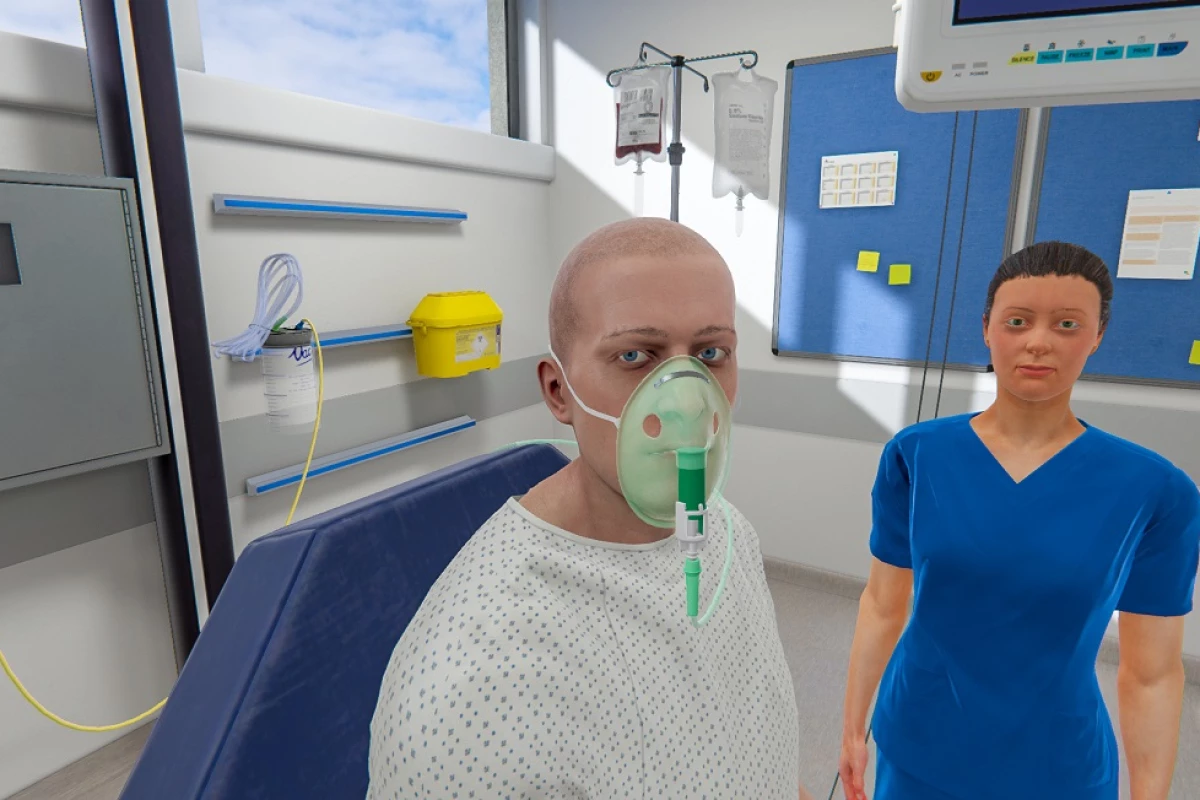Middlesex University London is putting student nurses, pediatric postgrads and midwifery students to work in virtual environments to deal with scenarios faced in real-world settings.
The virtual training environment is being supplied by Oxford Medical Simulation (OMS), which last year rolled out an emergency healthcare pilot across multiple National Health Service sites in the south of the UK. The system is currently being rolled out to third year student nurses and pediatric postgraduates, with student midwives gaining access to the setup later in the year.
The digitized hospital ward presents students with 20 different healthcare problems through Oculus Rift VR headsets, including patients with breathing problems, diabetes, Sepsis, severe allergies and chronic obstructive pulmonary disease. The trainees can interact with virtual patients, diagnose any maladies and respond with the best treatment.
Upon completion of the exercises, an analytics engine that's reported to deliver "powerful learning insights" presents feedback and grading to discuss with real-world tutors.
"Any simulation is only as good as the way it is debriefed so you have to use a very definitive evaluation tool led by experienced people which is embedded in the curriculum effectively," said the university's Fiona Suthers. "Students can obtain the feedback, see how well they have performed and discuss the results after their own internal reflection, so learning can emerge through the actions that are right or wrong. This technology is allowing students to make mistakes without repercussions."
This virtual ward is not Middlesex University London's first dip into simulated training environments, last year opening a four-bed virtual ward that included an augmented pregnancy model to practice normal deliveries and emergency situations, a neo-natal baby that moves and breathes and can respond to treatment, and a torso for teaching human anatomy and ultrasound scanning. The university is one of the first to make the OMS medical training platform available to nursing students though.
"We have developed OMS because we believe that training healthcare professionals in a flexible, zero-risk environment will transform patient care around the world," said Dr. Jack Pottle from OMS. "We learn best when learning from experience and our system will allow users at Middlesex to do just that – without putting patient’s lives at risk."
Source: Middlesex University London






